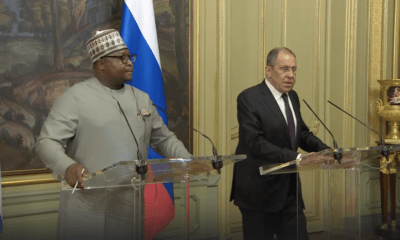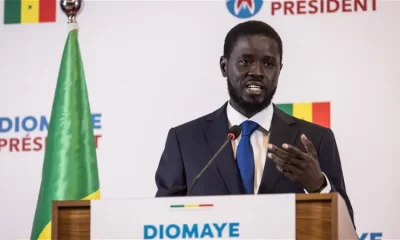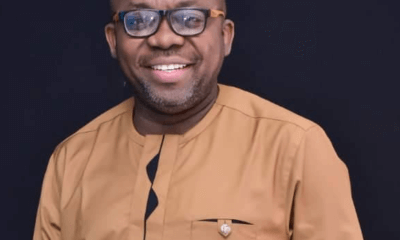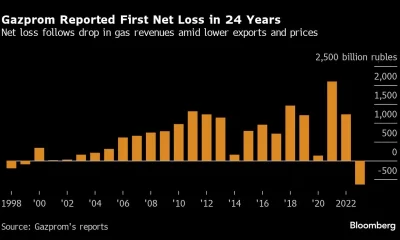Political Issues
Election Without Credibility: A Call For Reform -By Oluwasanmi Femi
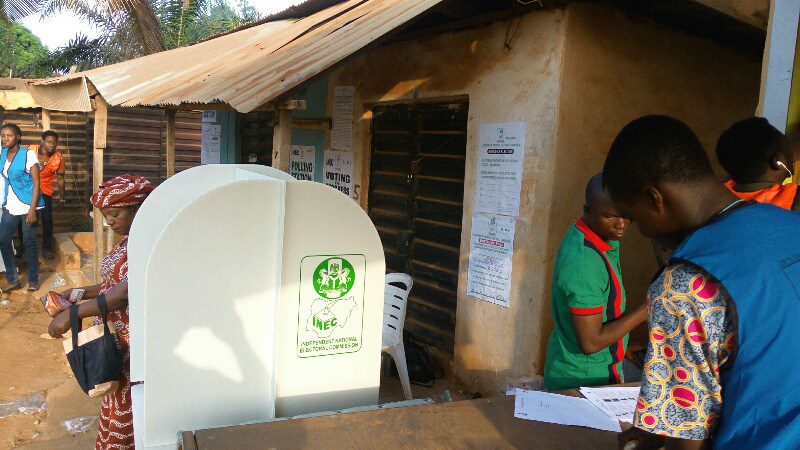
The rising tide of contentious elections ending in heated debates, court challenges, protests and legitimacy crises which in some cases triggered bloodshed, destruction, and undermined the capacity for stable governance, political inclusion, and national integration shows that electoral reform is an indispensable factor in Nigeria election calculus today.
Senator Ovie Omo-Agege and Abubakar Kyari while explaining the 26 clauses in the 2019 Electoral Amendment bill at the floor of the Senate on 20th November, 2019, stated that the amendment of the Act is to strengthen and protect Nigeria’s democracy, as well as “cure specific mischief plaguing elections and electoral processes in Nigeria, and as such, remains a priority in the ninth National Assembly’s legislative agenda.
Similarly, the Independence National Electoral Commission (INEC) Chairman, Prof. Mahmood Yakubu, on 10th December, 2019 said the commission would work assiduously with critical stakeholders in the electoral process in providing clarity, removing ambiguities, plugging existing lacuna in laws and constitutionally implementing those aspects of the law that guaranteed the credibility of elections. By interpretation, this lacuna seems to be responsible for the crisis that characterized the recent elections in Kogi and Bayelsa States.
In Kogi State Election for instance, there were report of high level of ballot snatching, sporadic gunshots and other malpractices that took not less than six (6) persons lives during the election despite the huge numbers (25,000 police men) of security personnel deployed to the state. The hight of this horrendous display was the incension of the Women Leader of Peoples Democratic Party Campaign Organisation in the election, Mrs Salome Abuh, in her house on 18th November, 2019.
Equally in Bayelsa state, both the electoral materials and INEC officials were hijacked by armed men. In some areas, electoral materials were not delivered to the polling unit till the end of the election. Probably, this made the Convener of Nigeria Civil Society Situation Room (NCSSR), Clement Nwankwo, on 17th November, 2019 to described the elections as “a major dent to Nigeria’s democratic process.
In 2018, a similar analogy was used by the European Union observers for the Osun State Election. Some even described it as a slap on democracy and called for reform in order to prevent such occurrence in future election. Not knowing that 2019 will manifest the next level of such display.
As a matter of fact, the way and manner at which elections were conducted from 2015 till date, shows that the process has really retrogressed and therefore needs a progressive reform in order to salvage the nation’s democracy from collapse.
2015 General election was so unique in Nigeria’s history to the extent that it created a level playing ground where the incumbent government lost to the opposition party at the center. Ordinarily, one would have expected the beneficiaries of this election to improve on this precedent, but based on the broad day light election robbery this days, the story seems to be opposite.
Before 2015 election, all the election results have always being in favour of the ruling party including the 2007 general election which the winner publicly agreed that the election was not credile enough and promised to expedite a reform. The same was the story in 2003 and 1999, to show the level of malpractices in the Nation’s elections and processes.
The same was the narrative in the first and second republics. And that is the reason the losers always visit Election Tribunal after the election to participate in what most of the time seems to be judicial gymnastic.
According to the data released by the headquarters of the Court of Appeal in Abuja on 4th April, 2019, not less than 736 election petitions have been filed to challenge the outcome of the 2019 general elections, including the presidential election, at various states and levels.
The most debated petition both at the public court and the court of law was Buhari v.s Atiku which gave so many people sleepless nights including the president Mohammadu Buhari, before he was declared eminently qualified by the Supreme court on 30th October, 2019.
However, the tradition of post-election result wrestling which in most cases always initiated by the loser at the ring of justice is not new in Nigeria. Infact, the 2015 general where the ruling party lost to the opposition party witnessed over 600 election petitions at the Election Tribunal. The same was the case in 2011, 2007, 2003 among others.
The rate at which elections petitions are submitted to Election Tribunal in Nigeria seems to leave the line between the INEC and Election Tribunal blurred. Infact, it suggests that the Tribunal is an umpire where petitions is cast to debate the winners.
Most times, when it favours the petitioner the judiciary is unbiased, neutral and working. But, when it goes otherwise, the judiciary is corrupt. This is the reason an holistic reform starting from the electoral act is the panacea to the problem of election without credibility in Nigeria.
Therefore, while the Electoral Amendment bill is passing through the legislative process, there is need for the political class and the electorates to embark on inner reform so that the 2023 election can serve as a roadmap for other countries within and outside African continent. Because, a reformed electoral act without human reform is like a vehicle without an engine.

